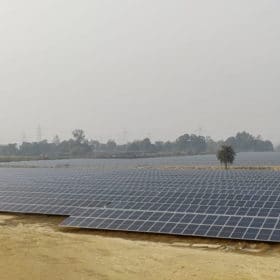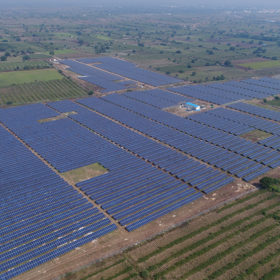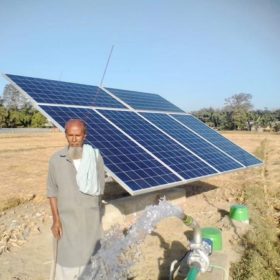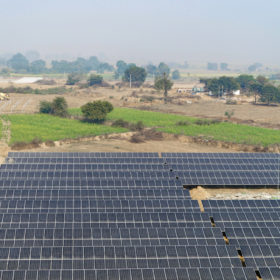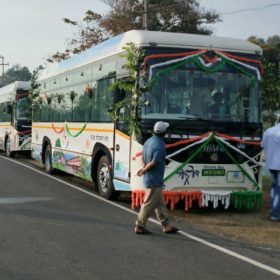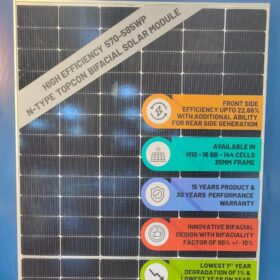Powering to empower rural India
Smart Power India, a subsidiary of US-based impact investor The Rockefeller Foundation, was established in India in 2015 with the aim of extending power to those without sufficient access to reliable and quality electricity. Jaideep Mukherji, CEO, Smart Power India, speaks to pv magazine about their work in India and way forward.
Tata Power secures Gujarat solar project worth INR 460 crore
Following NTPC’s 320 MW project, Tata Power has won the order to build 95 MW of ground-mounted solar PV project for Gujarat State Electricity Corporation Limited (GSECL). The order value of the project is around INR 460 crore ($63 million).
Vikram Solar commissions 140 MW PV project for NTPC
The EPC contractor said it is the largest solar plant by capacity commissioned so far in the state of Uttar Pradesh. The plant is estimated to generate 319 million units of electricity per year, which is enough to power 1,45,662 houses annually.
Tata Cleantech secures US$30-million from UK investor CDC
The investment will enable Tata Cleantech to provide loans for green projects, including e-mobility solutions as well as water and energy efficiency.
Maharashtra invites developers for 250 MW grid-connected solar
The 250 MW solar capacity is to be set up on a build-own-operate basis at Dondaicha Solar Park in the district Dhule. The tariff ceiling is fixed at INR 2.83/kWh for the entire power purchase duration of 25 years.
West Bengal tenders for solarization of grid-connected agriculture pumps
Developers have until February 13 to bid for installation and commissioning of distributed grid-connected solar PV plants to power agriculture pumps.
SolarArise commissions 75 MW solar plant in Uttar Pradesh
State-run Uttar Pradesh Power Corporation Limited (UPPCL) will procure the electricity generated from the solar plant under a 25-year power purchase agreement.
Eden Renewables India secures US$165 million finance for 450 MW solar project
The project, currently under construction in Rajasthan, was won by the developer in a Solar Energy Corporation of India (SECI) auction.
Andaman island rolls out electric buses
The project, comprising a fleet of 40 electric buses, is being implemented by NTPC Vidyut Vyapar Nigam Limited.
Sterling and Wilson commissions 25 MW solar project in Oman
The latest addition is the Indian multinational’s second project in Oman after a 125 MWp solar plant commissioned in June last year.



